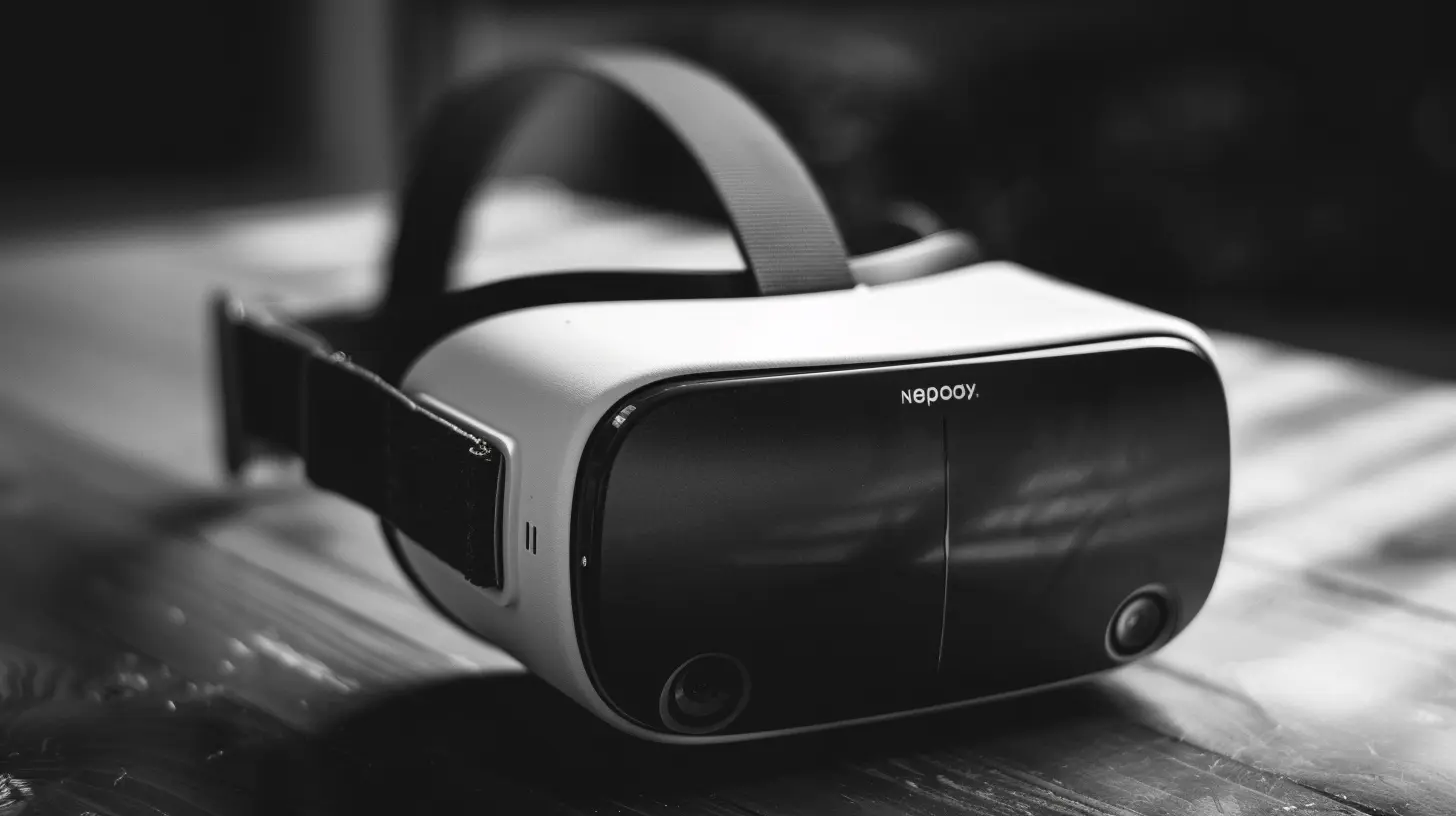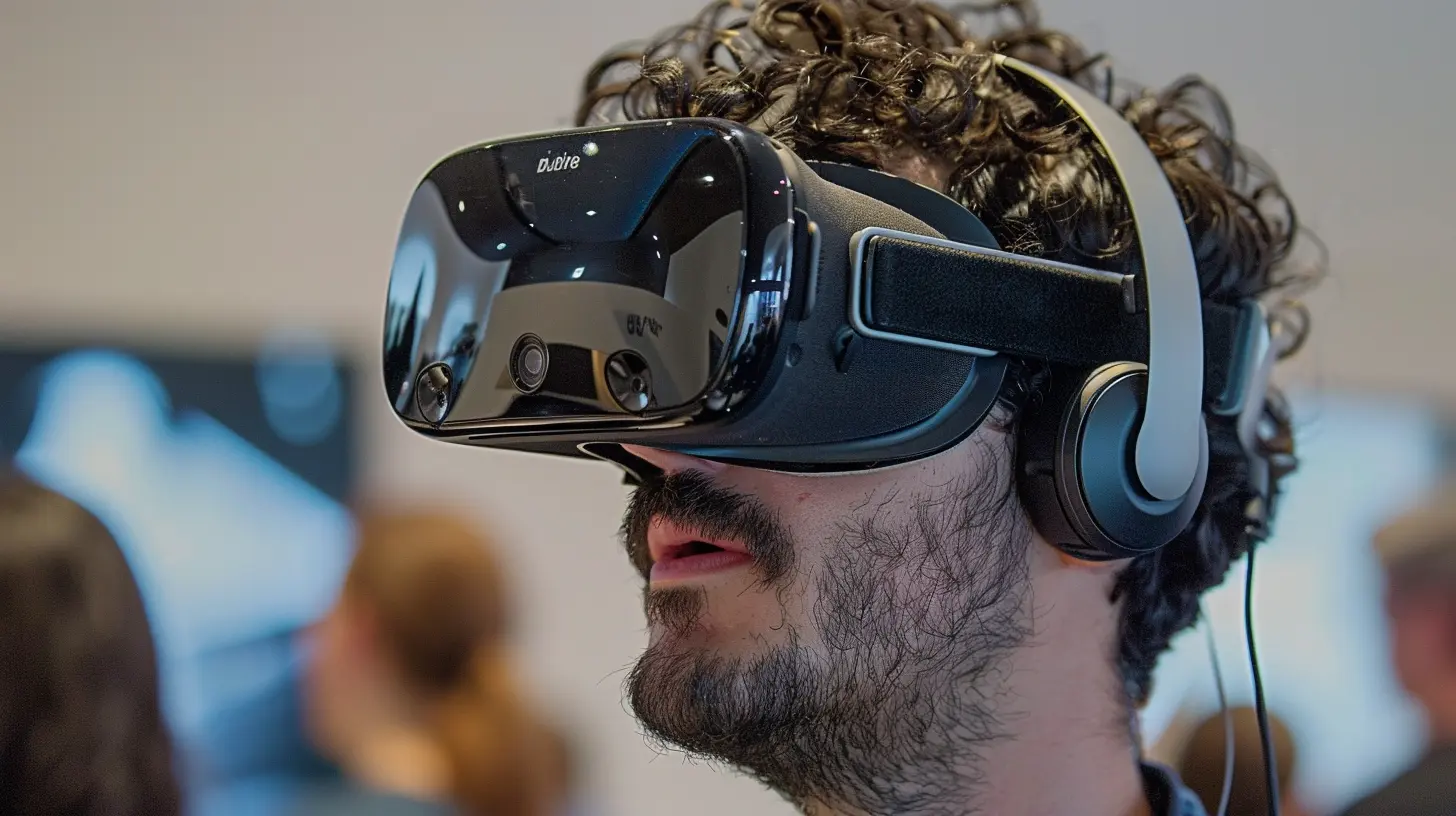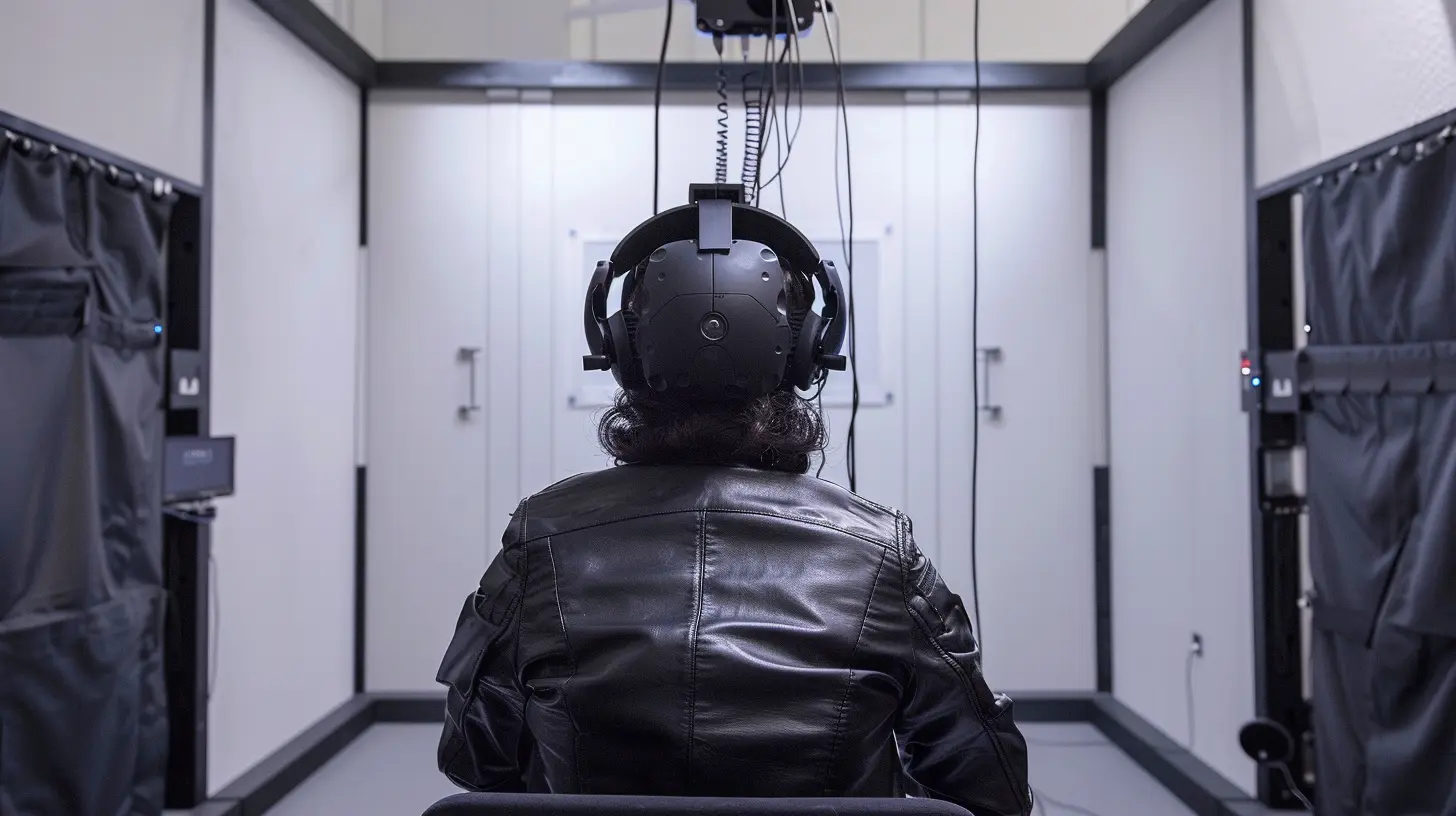How Virtual Reality is Being Used to Study the Brain
4 February 2025
Virtual reality (VR) has leaped from the world of gaming and entertainment into some of the most complex fields of science, including neurology and psychology. If you thought VR was just for playing video games or watching immersive 3D movies, think again! Scientists are now using this technology to dive deep into the human brain. Pretty wild, right?
But how exactly is VR being used to study how our brains work? And why is this technology so transformative in understanding the mind? Let’s explore the fascinating ways VR is reshaping brain research and what it could mean for the future of science and medicine.

Why Virtual Reality? What Makes It Special?
Before we dive into the brainy stuff, let’s quickly review why VR is such a big deal. VR is a fully immersive 3D experience that can trick your brain into thinking you're somewhere else. You put on a headset, and suddenly you're no longer sitting in your living room—you’re flying over mountains, diving into the ocean, or even exploring distant planets.But VR isn't just entertaining. Its immersive nature makes it ideal for simulating real-world environments or creating entirely new ones. This is crucial for brain studies because the brain is highly responsive to sensory input. With VR, researchers can control every aspect of the environment—lighting, sounds, objects, even social interactions—giving them unprecedented control over what stimuli the brain is exposed to.
Think of it like a scientific sandbox, where researchers can manipulate the world and observe how the brain reacts in real time. No other technology offers this level of precision and flexibility.

How VR Helps Us Understand Brain Function
1. Simulating Real-Life Scenarios
One of the most remarkable ways VR is being used to study the brain is by simulating real-life situations in a controlled environment. This allows researchers to observe how the brain reacts to various stimuli without the unpredictability of the real world.For instance, VR environments can be used to study how people react to stressful situations, like public speaking or navigating a crowded room. By carefully controlling the scenario, researchers can analyze the brain’s response to stress, anxiety, or fear in a way that would be impossible in a traditional lab setting.
2. Mapping the Brain’s Response to Sensory Input
The brain is constantly processing information from our senses—sight, sound, touch, smell, and taste. But understanding how all these sensory inputs come together in the brain is no easy task. Enter VR.With VR, researchers can expose users to different sensory experiences—like changing the color of objects, altering sounds, or modifying a virtual world’s texture—and observe how the brain processes this information. By studying brain activity using technologies like fMRI (functional magnetic resonance imaging) or EEG (electroencephalography) while participants interact with virtual environments, scientists can map out which parts of the brain are activated by different sensory experiences.
This approach is helping researchers understand how the brain integrates sensory information, and it could lead to breakthroughs in treating conditions like sensory processing disorder or even autism.
3. Virtual Reality as a Cognitive Testbed
VR is also being used as a testing ground for cognitive functions like memory, attention, and decision-making. Researchers can create intricate virtual environments to test how people navigate spaces, remember details, or solve problems.For example, imagine being placed in a virtual maze. Researchers can track how you navigate the maze and monitor your brain activity to study how your brain forms and uses spatial memory. This is particularly valuable for studying conditions like Alzheimer’s disease, where spatial memory is often one of the first functions to decline.
By creating specific, repeatable scenarios, VR allows researchers to study cognitive functions with a level of precision that was previously unattainable. And because VR can simulate environments that are impossible or unethical to create in real life, like extreme danger or high-risk situations, it opens the door to studying how the brain functions under conditions that would otherwise be impossible to test.
4. Treating Mental Health Conditions
One of the most exciting applications of VR in brain research is its use in treating mental health disorders. VR is already being used for exposure therapy, a treatment for phobias and PTSD (post-traumatic stress disorder). In VR, patients can be gradually exposed to situations that trigger their fears, helping them build resilience and reduce anxiety over time.But VR goes beyond just exposure therapy. Because researchers can create any kind of scenario in a virtual world, they can study how different environments affect the brain in people with anxiety, depression, or even schizophrenia. Imagine being able to walk through a calming forest or navigate a bustling city street from the safety of your own home. VR can take patients through these experiences while researchers monitor their brain activity, allowing for more targeted and effective treatments.
The implications for mental health treatment are enormous. As VR technology improves, we may see more personalized treatment plans based on how individual brains respond to different virtual environments.

VR in Neurological Research
1. Studying Brain Plasticity
Neuroplasticity, or the brain’s ability to reorganize itself by forming new neural connections, is a hot topic in neuroscience. VR is playing a significant role here, too. By creating specific virtual environments, researchers can study how the brain adapts and changes in response to new experiences.This is particularly useful in studying recovery from brain injuries or strokes. VR-based rehabilitation programs are already being used to help patients regain motor skills, balance, and cognitive functions. For example, a stroke patient may use VR to practice reaching for objects or walking, all while researchers monitor how their brain is rewiring itself to compensate for lost functions.
2. Motor Control and Movement Disorders
VR is also being used to study movement disorders like Parkinson’s disease. In a VR environment, researchers can control and measure every aspect of a user’s movement, providing detailed data on how people with movement disorders navigate the world.For example, researchers can track how someone with Parkinson’s responds to specific tasks, like walking through a virtual room or picking up virtual objects. By analyzing this data, scientists can identify patterns in how the brain controls movement and develop better treatments or interventions for these disorders.

Challenges and Limitations of Using VR in Brain Research
Of course, like any technology, VR isn’t without its challenges. For one, not everyone reacts to VR the same way. Some people experience motion sickness or discomfort, which can make it difficult to use VR for extended periods.Additionally, VR is still a relatively new tool in the world of brain research, and there’s much we don’t yet understand about how the brain processes virtual experiences versus real-world ones. While VR offers incredible possibilities, it’s important to recognize that it’s not a magic bullet. It’s just one tool in the larger toolbox of neuroscience and psychology.
Another limitation is the cost and accessibility of VR equipment. High-quality VR systems are still expensive, and not every research lab or clinic can afford them. However, as the technology becomes more widespread and affordable, we can expect to see even more innovative applications in brain research.
The Future of VR in Brain Studies
So, what's next? The future of VR in brain research is incredibly promising. As VR technology continues to advance, we can expect even more sophisticated and immersive virtual environments. Imagine VR systems that are so realistic they’re indistinguishable from the real world. With these advancements, researchers will be able to study the brain in ways we can barely imagine today.Additionally, as brain-computer interface (BCI) technology improves, we may see even more integration between VR and neuroscience. BCIs allow direct communication between the brain and external devices, and when paired with VR, the possibilities for brain research are mind-blowing. Imagine a future where you can control a virtual environment with just your thoughts, giving researchers unparalleled access to brain functions.
Conclusion: Virtual Reality is Revolutionizing Brain Research
In a world where understanding the complexity of the human brain has always been a challenge, VR is providing a new and innovative way to explore the mind. From studying sensory processing and cognitive function to treating mental health conditions and neurological disorders, VR is making waves in the world of brain research.And we’re just scratching the surface. As VR technology continues to improve, the insights we gain about the brain will only become more profound. Who knows, in the near future, we might even be able to map the brain in ways that were once thought impossible.
So, the next time you put on a VR headset, remember—you’re not just stepping into another world. You’re stepping into a tool that could change the future of brain science.
all images in this post were generated using AI tools
Category:
NeuroscienceAuthor:

Eliana Burton
Discussion
rate this article
10 comments
Daria McMichael
Fascinating insights into brain exploration!
April 4, 2025 at 3:03 AM

Eliana Burton
Thank you! I'm glad you found the insights interesting!
Quorra Bellamy
Fascinating intersection of technology and psychology! Excited to see how VR reshapes our understanding of the brain.
March 25, 2025 at 3:53 PM

Eliana Burton
Thank you! Excited to explore these possibilities too!
Vance McDermott
Virtual reality is revolutionizing neuroscience by providing immersive environments that enhance our understanding of brain functions. This innovative approach allows researchers to observe behaviors and neurological responses in real-time, paving the way for breakthroughs in treatment and therapy. The future of brain research is undeniably virtual.
March 2, 2025 at 5:40 AM

Eliana Burton
Thank you for your insightful comment! Indeed, virtual reality is transforming neuroscience by offering unprecedented opportunities to explore brain functions and improve treatment methodologies.
Carmen Chavez
This article beautifully encapsulates the transformative potential of virtual reality in understanding the brain. It's fascinating to see how innovative technology can deepen our insights into mental processes. I'm excited about the future implications for therapy and mental health treatment. Thank you for sharing!
February 22, 2025 at 6:01 AM

Eliana Burton
Thank you for your thoughtful comment! I’m glad you found the article insightful and share your excitement about VR's potential in mental health.
Fallon McLanahan
This article offers intriguing insights into how VR can enhance our understanding of brain function.
February 21, 2025 at 5:04 PM

Eliana Burton
Thank you! I'm glad you found the insights valuable. VR truly has the potential to revolutionize brain research.
Zephira Rhodes
Ever wonder if VR can help us understand our brains better? Just imagine psychologists wearing headsets, exploring the inner workings of our minds while dodging virtual flying donuts! If only they could create a simulation of my willpower during snack time—now that’s science I can get behind!
February 20, 2025 at 4:30 AM

Eliana Burton
Absolutely! VR offers a unique way to visualize and engage with brain processes, making it a promising tool for psychologists to study behaviors, like willpower, in immersive environments. Your donut dodgeball analogy perfectly captures the fun potential of this research!
Karly Thompson
Virtual reality offers innovative methods for observing brain functions, enhancing our understanding of cognitive processes and disorders.
February 18, 2025 at 4:23 AM

Eliana Burton
Thank you! Indeed, virtual reality provides unique, immersive environments that can reveal new insights into brain function and cognitive processes.
Anna Anderson
This article offers a fascinating glimpse into the intersection of technology and neuroscience. It highlights how virtual reality is revolutionizing our understanding of the brain's complexities and potentials.
February 16, 2025 at 4:39 PM

Eliana Burton
Thank you for your insightful comment! I'm glad you found the article engaging and appreciate the exploration of VR's impact on neuroscience.
Remington McClure
In realms of pixels, minds unfold, Virtual echoes, stories told. Neurons dance in vibrant flight, Unveiling secrets, day and night.
February 15, 2025 at 4:36 AM

Eliana Burton
Thank you for your poetic reflection! It beautifully captures the transformative power of virtual reality in exploring the complexities of the brain.
Zeth Snow
Virtual reality isn't just a tech gimmick; it’s a groundbreaking tool that’s revolutionizing neuroscience. By immersing ourselves in virtual environments, we unlock unprecedented insights into brain function and behavior, paving the way for innovative treatments and a deeper understanding of the human mind.
February 7, 2025 at 4:10 AM

Eliana Burton
Absolutely! Virtual reality is indeed transforming neuroscience, offering unique ways to explore brain function and behaviors that could lead to significant advancements in treatment and understanding of the human mind.
MORE POSTS

Attention and Focus: How to Help Kids Improve Cognitive Skills

How Childhood Anxiety Can Impact Academic Performance

The Healing Power of Vulnerability in Emotional Growth

The Benefits of Integrating Psychodrama in Group Therapy

The Impact of Childhood Trauma on Mental Health Development

Overcoming Procrastination Through Emotional Self-Regulation

Exploring the Integration of Neuroscience in Modern Therapy Techniques